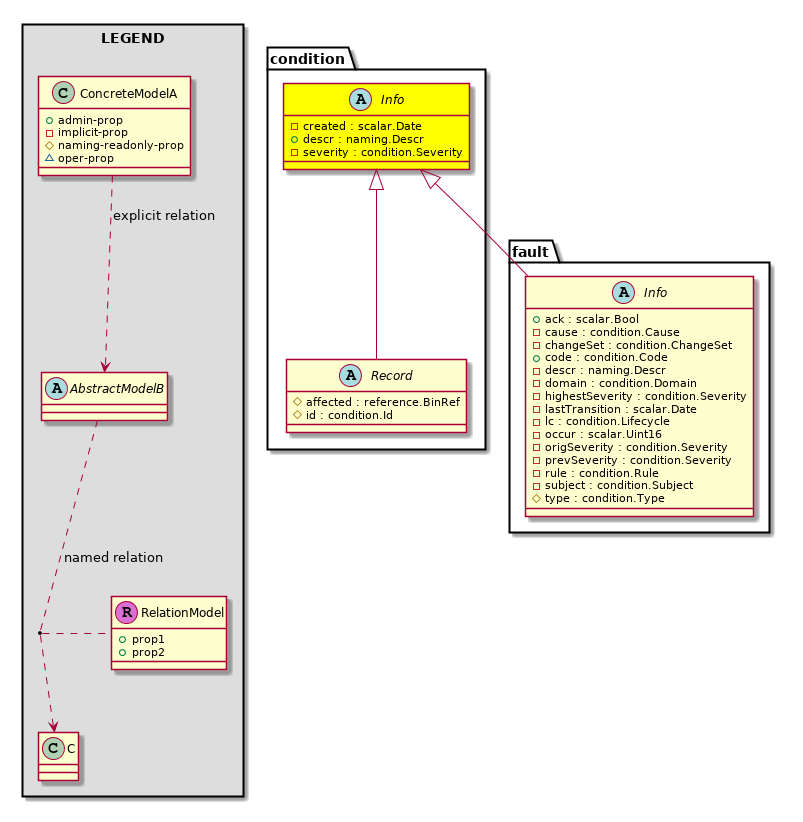![[V]](styles/eye.gif) |
condition:Info Represents an abstract base class for all reportable and loggable objects. |
|
|
├
|
![[V]](styles/eye.gif) |
aaa:UserAction An abstract representation of a user action.
This is an abstract class and cannot be instantiated. |
|
|
|
├
|
![[V]](styles/eye.gif) |
aaa:ModLR An AAA audit log record is automatically generated
whenever a user modifies an object. |
|
|
|
├
|
![[V]](styles/eye.gif) |
aaa:SessionLR A log record that is automatically generated upon user login,
logout, and refresh. |
|
|
├
|
![[V]](styles/eye.gif) |
event:Record Represents an immutable object that records a state transition for an event
instance object. Record creation is triggered by event:Inst object creation or deletion,
or by modification of key properties (for example, severity, lifecycle, or acknowledgement).
Because an object of this class is immutable, all properties are set at the time the object
is created.
A record contains a complete snapshot of the event instance object and is logically org... |
|
├
|
![[V]](styles/eye.gif) |
fault:Record An immutable object that records a state transition for a fault
instance object. Record creation is triggered by fault:Inst object creation or deletion,
or by modification of key properties (for example, severity, lifecycle, or acknowledgement).
Because an object of this class is immutable, all properties are set at the time the object
is created. A record contains a complete snapshot of the fault instance object and is logically organized as a ... |
|
├
|
![[V]](styles/eye.gif) |
health:Record Contains a complete snapshot of the health instance. |
├
|
![[V]](styles/eye.gif) |
fault:Info An abnormal condition or defect at the application, component, equipment, or sub-system level that may lead to a failure, as defined in ISO/CD 10303-226. The fault:Inst and fault:Delegate objects inherit their properties from this object. |
|
├
|
![[V]](styles/eye.gif) |
fault:Delegate Exposes internal faults to the user. A fault delegate object can be defined on IFC (for example, for an endpoint group) and when the fault is raised
(for example, under an endpoint policy on a switch), a fault delegate object is created on IFC under the specified object. A fault delegate object follows the lifecycle of the original fault instance object, being created, modified, or deleted based on the changes of the original fault. |
|
├
|
![[V]](styles/eye.gif) |
fault:Inst Contains detailed information of a fault. This object is attached as a child of the object on which the fault condition occurred. One instance object is created for each fault
condition of the parent object. A fault instance object is identified by a fault code. |
|

